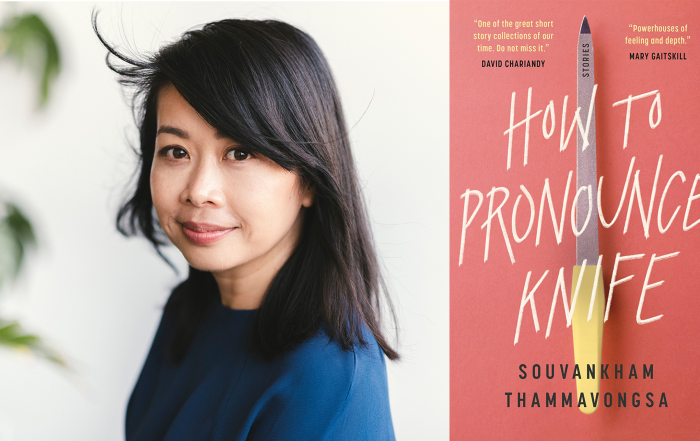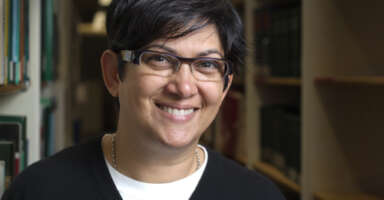 The winner of the prestigious 2020 Scotiabank Giller Prize and one of the finalists are supervising associated graduate faculty at the University of Guelph.
The winner of the prestigious 2020 Scotiabank Giller Prize and one of the finalists are supervising associated graduate faculty at the University of Guelph.
Toronto writer and poet Souvankham Thammavongsa won the $100,000 literary prize Monday night for her short-story collection How to Pronounce Knife, her first work of fiction. Jurors hailed the book as “a stunning collection of stories that portray the immigrant experience in achingly beautiful prose.”
Shani Mootoo, a U of G graduate and Ontario-based writer and visual artist, was one of the four other finalists. She was nominated for her novel Polar Vortex.
Both are thesis advisers in the creative writing program in U of G’s College of Arts.
Born in the Lao refugee camp in Nong Khai, Thailand, and raised in Toronto, Thammavongsa has earned acclaim for her poetry, and her writing has been featured in publications including Harper’s, the Paris Review and The Atlantic. She has won the Trillium Book Award for Poetry and the ReLit Award. She has been awarded residencies and fellowships by Yaddo and the Canada Council for the Arts, and has performed her work at the Guggenheim Museum in New York.

Mootoo earned a master of arts degree in English in 2011 and served as U of G’s writer-in-residence in 2010. She is the author of the novels Cereus Blooms at Night, which was shortlisted for the Giller Prize and longlisted for the Man Booker Prize; He Drown She in the Sea, which was longlisted for the Dublin IMPAC Literary Award; and Valmiki’s Daughter, which was longlisted for the Scotiabank Giller Prize in 2009. Mootoo was born in Ireland and grew up in Trinidad and now lives near Toronto.
The Scotiabank Giller Prize is named for the late literary journalist Doris Giller and was founded in 1994 by her husband, Toronto businessman Jack Rabinovitch. The award recognizes excellence in Canadian fiction — long-format or short stories — and includes the largest cash prize for Canadian literature.
Past Giller winners include Margaret Atwood, Mordecai Richler, Alice Munro, Madeleine Thein, Esi Edugyan and Ian Williams, who received the prize last year for his debut novel, Reproduction.